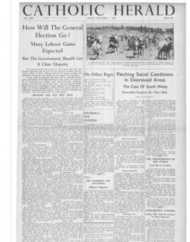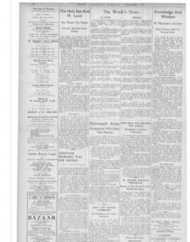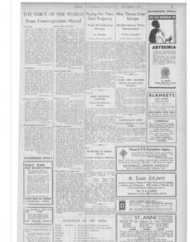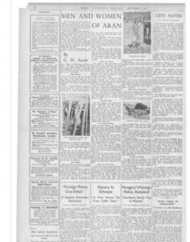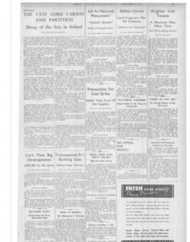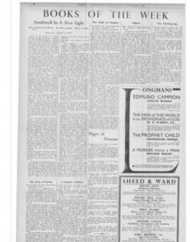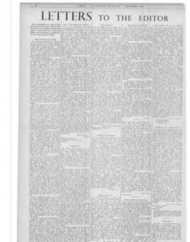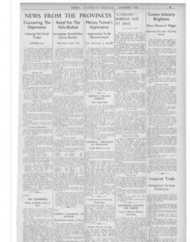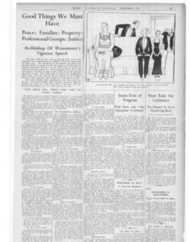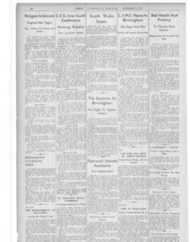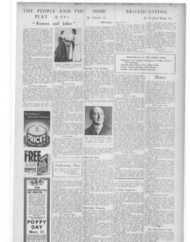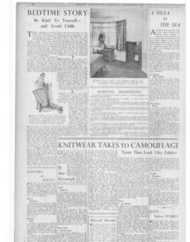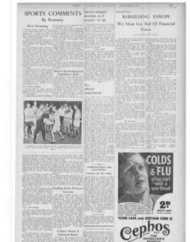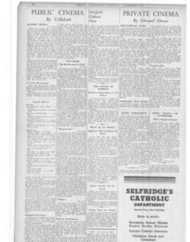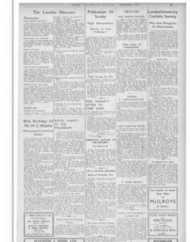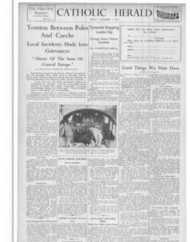Page 13, 1st November 1935
Page 13
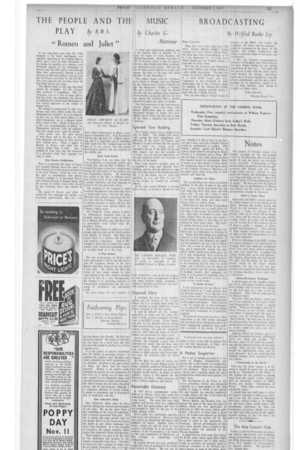
Report an error
Noticed an error on this page?If you've noticed an error in this article please click here to report it.
Tags
Share
Related articles
Radio
BROADCASTING
By Rooke Ley DEAR LISTINFR, There have heel some good plays this week. notably .Horton Giddy's (-mtg.° Landing ano Felton's Opium Eater, but these have been overshadowed, so far as I am concerned, by an l:ish cent which should give the English listenes a good deal to think about.
This was the broadcast last Wednesday week from Athlone and Radio Dublin of a play called Apocalypse. The play was written by Francis McManus (the author of a novel called Stand and Give Challenge); it was produced by John McDonagh; and it was broadcast under Ihe auspices of ths Marian Arts Guild. Stated in the simplest possible terms, it dealt with the Catholic Church.
Now, the first thing it brought home to
one—though it is silly to have to say so— was that a play about the Catholic Church would be unthinkable in London. This implies nothing against the B.B.C., of course, which could be wound up by Royal Charter if it attempted such a thing. But the sad thing is that a play about anything that matters would be unthinkable. What it comes to is that instead of plays about the totalitarian state or the bourgeois mind or the Catholic Church or Mammon, we arc given plays about being kind to little animals and what-not.
Medium for Ideas
The second thing was, what an amazing medium for the play of ideas is the radio play. 1 have always maintained that the real radio play deals with ideas, and with ideas only. It can't tell a story, it can't cope very well with characterisation; but it can deal with ideas, and ideas must always form its central theme.
Otherwise it is pale edition of something that can he done ever so much better on the stage or the screen. The trouble about our radio plays in London is either that their authors have no ideas—no values— worth writing about; or that they are not allowed to write about them. The latter, of course, we know to be the case.
Apocalypse let in a cu-rcnt of clean air. There was an exhilaration in listening to it. There were fifty things you could say about it, if you wanted to be critical. It was too long, it was shapeless, the speaking was sometimes not very easy to follow, there was a want of clarity in the writing. and it lamentably lacked that simplicity which would have made great art of it and, incidentally, have rammed its values home. But what does that matter? It was an attempt, and a gallant attempt, to do something that for once was worth while; and it proved a fact of which we have at present only the merest suspicion in London, namely, that radiogenic art when it is harnessed to something that is worth while is as powerful a force that exists in the world to-day,
"A Radio Sermon" It was unnecessary for the Marian Arts Guild to label it as "a radio sermon after the Russian manner" or to describe it as being written with "the broadcast equivalent of the scare headlines and typography of the modern newspaper." This is merely a way of saying that it was radiogenic, i.e., as a play that was written in the unique and distinctive technique of its particular medium.
We know all about that over here, where experiment is not only farther advanced but can claim better interpreters and a far better engineering equipment than probably anywhere in the world. If the re
sources of the B.B.C.—the writers. tho producers. the voices, and the engineers— could be harnessed to the ideals of the Marian Arts Guild. totalitarians and others would soon begin to feel preto uncomfortable.
offer my sincerest congratulations, therefore, to the guild, and I shall keep my eye upon Radio Dublin for any further
experiments of that sort. The guild will not quarrel, I feel, with the word experiment, because the horizon Apocalypse opens out is of more significance than the present achievement, and this play's shortcomings are of importance chiells in so far as they illustrate what should he avoided in future plays.
Yours sincerely.
Witstou Rooes Lev.
blog comments powered by Disqus


